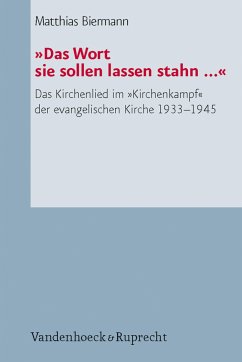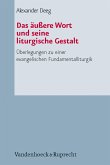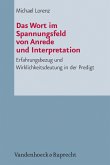The so-called "Kirchenkampf" from 1933-1945 split the Protestant Church in Germany into two major groups, the Confessing Church and the German Christians. The battle took place less on the political level than from within the church. Matthias Biermann looks at the influence this situation had on the hymns used in the church. First, on a practical level, he describes the way hymns were sung during this period. Considerable archival material exists, such as bulletins and newspaper accounts as well as song collections from this period that demonstrate exactly how the struggle in German Protestantism influenced singing practices. But also the theoretical discussions concerning the very nature and role of hymns reflect the political situation in the church of that time. Matthias Biermann analyses the positions of both factions in several contributions concerning their understanding of hymns. He also lets a number of well-known actors, such as Karl Barth and Dietrich Bonhoeffer, speak on these matters. An important role in understanding the relationship between the political development in the church and the meaning of the hymn in church liturgy is played by the new hymns written during this period, which the author studied in great detail. Finally, the author makes the attempt to assign the various new hymns to the respective factions.Matthias Biermann¿s presentation of the meaning of the hymn is marked by his profound knowledge of much heretofore unknown archival material, particularly concerning the German Christians, who have to date been rather neglected in this regard.
Dieser Download kann aus rechtlichen Gründen nur mit Rechnungsadresse in A, B, BG, CY, CZ, D, DK, EW, E, FIN, F, GR, H, IRL, I, LT, L, LR, M, NL, PL, P, R, S, SLO, SK ausgeliefert werden.









